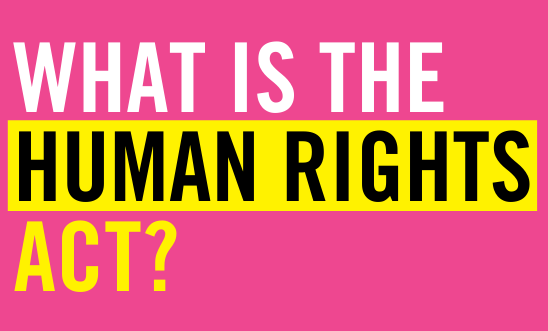
The Human Rights Act: Explained

What is the Human Rights Act?
The Human Rights Act brings home fundamental, universal rights we all have as human beings, and allows us to challenge authorities if they violate them.
If you’re lucky you won’t ever need to use it in a court. But it’s protecting you all the same.
It’s an invisible safety net for all of us, working quietly to ensure our rights are respected, and a crucial means of defence for the most vulnerable.
Right now this vital protection is at risk. Attacked by some politicians, misreported by parts of the press and misunderstood by many – it’s time to spread the message that human rights matter.
Our hard-won rights
Over the centuries, ordinary British people have fought and died for the rights we enjoy today.
From helping victims of domestic abuse to protecting confidential communications between lawyers and their clients – the Human Rights Act helps us to fight injustice and incompetence in the UK and hold those in power to account.
It’s been used by people in care homes, by children to make sure they are protected from abuse and harm when in the criminal justice system, by hospital patients facing homelessness after discharge, by survivors of sexual assault whose cases haven’t been properly investigated by the police, and by disabled people whose right to dignity has been violated.
We must not let politicians take away our rights at the stroke of a pen. Weakening the Human Rights Act would hurt all of us, but it’s the most vulnerable who would suffer most from the safety net being cut.
Fighting for justice around the world
In the UK at present, we enjoy some fundamental freedoms that people are still struggling for around the world.
How can the UK Government take a tough stance against the world’s dictators, torturers and tyrants if they are turning their backs on human rights at home?
Which of your essential human rights would you be happy to lose – the universal right to a fair trial? Protection against slavery? The right to free elections?
If your answer is 'none of them', it’s time to take a stand.
Keep up to date with our work: follow us on Twitter and on Facebook.